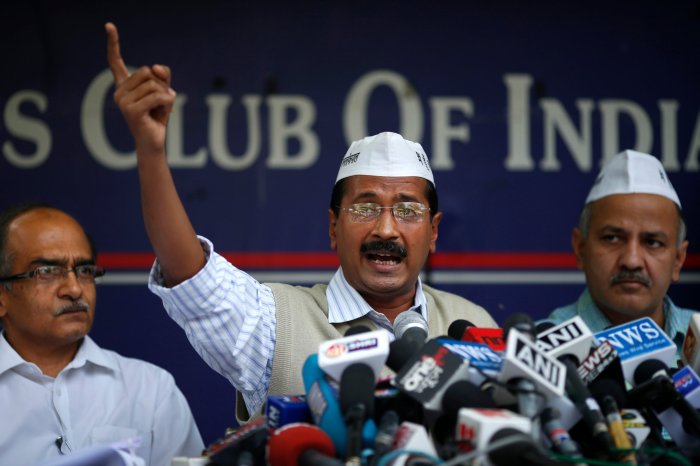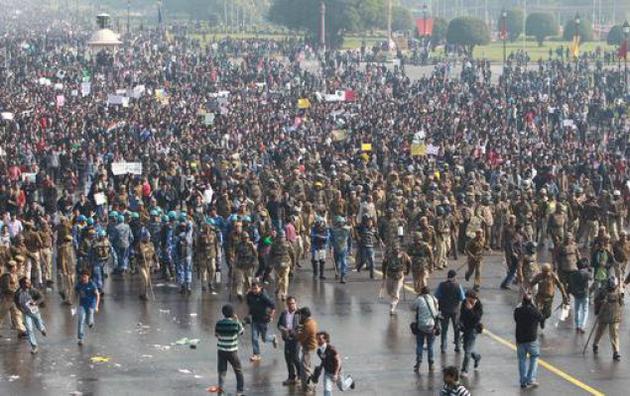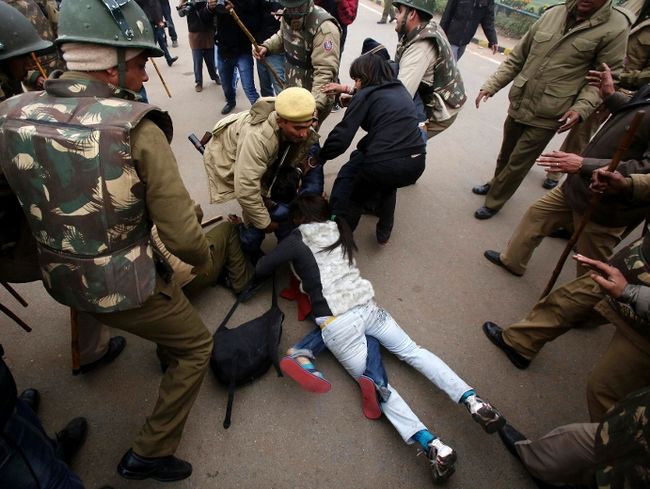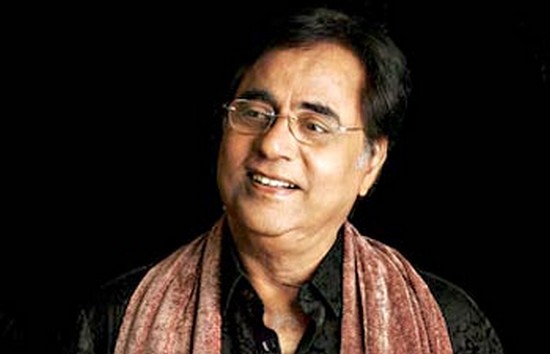I first met Rajni on a cold December morning at her office at Bhogals. I had just joined Edge Communications and one of the agenda was to turn it in to a full service agency. We were looking for someone to partner us for a PR wing and friend Ajay Kumar who was my colleague suggested that we meet Rajni.
Rajni Raghavan. She had just come out of a divorce and Ajay was a friend of her ex husband, Dilip Cherian and so knew Rajni well.
Her office was in the basement of a typical Bhogal building, what with cows and bulls outside the house. She ran a design outfit, having passed out from NID some years ago. She had worked with the Business Press group, Sunday Mail and Times of India as a magazine designer and now operated on her own with a team of four people. Her major client was The British Council, for whom she designed and printed a magazine.
The first meeting was very official. I introduced myself and we talked business. Yes, she would be interested, she had reasonable contacts in the Media. We decided to keep in touch and met up later. Little did I know that this was the beginning of a long, wonderful relationship which would go well beyond work.
We continued to meet basically to iron out the details of an alliance between her company and our agency which I proposed to submit to the husband-wife Board of the agency. On one such meeting she came over to our office at Connuaght Place and suggested that we go have lunch after the meeting was over. There used to be a lovely Arabic joint next to Regal Cinema who served a lovely buffet with Pita Bread and Mousuka and we decided to try it out. In selecting the dishes, I realized she knew a lot about food, making suggestions on what to choose and the accompaniment. It was a leisurly Saturday lunch and she told me that it was ironic that she was back discussing a project in CP itself as she had started her career with Business Press next to where we were lunching. She went back to old times, how she did the design work, how she shifted her jobs. All the while I was careful not to bring in Dilip since I knew Dilip for quite some time ( at that point of time I did not know he was married to Rajni) and it would have been not so correct to discuss him. However, when I told Rajni the story of a friend who was staying with a lady fighting for her divorce and how the lady had suffered the marriage, and how the landlady gave her shelter like a mother, that she opened up and talked to me about her experiences.
In a divorce situation, every party has their side of the story and the end of a marriage is always bitter for one party or the other. I never discuss such stories in public. It is like washing some one else’s dirty linen in the middle of the main colony road. Yes, Rajni was bitter, more so since Dilip had decided to get married soon and she was still single. I tried to reason out with her that we cant fault Dilip on that score and we, friends, are around to ease out the pain.
Soon, I became the shoulder to cry on. She would call me when ever she was in a state of depression, at times she would be angry, at times sad. We met for breakfast at Sagar at Def Col, for lunch at the Kerala restaurant at The Kanishka, or at Woodlands at The Lodhi. She insisted on hosting the meals. I did not know her house. All she had told me that she and Dilip used to stay in Nizamuddin and she was to go back to that house once it was vacated. By Dilip I presume. At that point of time she was staying in South Ex Part I. I did not ask how much she was paying for the rent. Anyways she seemed to be a big spender.
The working breakfast and lunches soon turned to Sunday morning shopping at Nanz, Archana. She would come in the morning to my mezzanine room at Def Col, I would treat her to breakfast. One day I was making Akuri when she dropped in. By mistake , I dolloped lot more butter than required and to my misery, she walked up to see what I was cooking. I knew she would throw a fit seeing the butter floating in the pan so some how tried to hide it like a school kid hides a pornography book. I got caught and got an earful.
“And how can you hide floating butter by standing next to the stove, trying to cover it with your fat arse? Idiot, melting butter has a disctinct smell!”
Being the single child of my parents, I think I always had a hidden desire to have a sibling. Some one with whom you could play, fight, trust, share. Some one for whom you could stand up even if you were doing the wrong thing.
Suddenly I found Rajni!
Following breakfast we would spend hours at the Super market, come back for coffee, go through the bill, paid off each other and once in a while go for a glass of beer.
One Sunday we decided to go for a Sale by Penguins at the British Council. On way back she asked me over for lunch at her place. While we sipped Feni she told me that the apartment actually belonged to a man with whom she living in. He was not in town and was travelling. I am to meet him once he was back.
“A Bong like you”, she declared.
“There seems to be too many Bongs in your life”
“Yes, and Dilip was originally from Kolkata. And yup, (she loved to “yup” with hardly any gap between y and p), I have a huge Bong gang.”
The Live In was a married guy who had promised to marry Rajni once his divorce came in. It is just a matter of time.
Some how, I had my doubts.
“Can I get to meet him?”
“Yes, will organize a dinner when he is around”
Months passed. I lived alone in Delhi. My family lived in Kolkata. I became Rajni’s official escort to the various parties to which she was invited. The chauffeur. Often I used to feel like a gate crasher. In many of the parties, some high profile, I just did not know anybody. They did not know me. I was a “friend” of Rajni. Her live in travelled almost every day, so people just saw more of her with me. I bet ideas were floating. Thankfully, this was before Page 3 was born.
Rajni seemed to be a woman about town. From Rahul Bajaj to Parliamenterians, every one knew her. I too made it a point to boast to my group that I had met so and so “last night”.
One evening I got a frantic call from her.
“Come to Claridges, fast. I am at Pickwicks.”
I rushed. There she was sitting with an aggressive look with a well known pot bellied politico. Minute she saw me she jumped out and held my arm and pushed me out of the eatery.
“What do they think? Just because I am divorced I am available for a free screw?” she shouted.
“ Do you know this guy well?”
Well, she knew every one who socialized.
“Why did you accept his invitation for tea?”
“Arrey, he just called to discuss some work with me.”
Rajni was naïve. Very. Over the years I found she fell in to these traps and then threw a fit. Once a guy kept flying her down to the Middle East where he was opening a chain of Appam Stew type of eatery and Rajni accepted the assignment, flew a few times to Dubai and then found the man had other designs.
“Why cant you see through people?” I often asked
I never got a satisfactory reply. She was very innocent
I finally got to see the man in her life.
“I have some Bongs over for dinner. Come and get to know them.”
Rajni was a very good cook. She and my best friend Chitra had once opened an eatery in Hauz Khas along with another lady and the deal was that everyone rustled up a menu which they carried from home. You could select from what ever they offered. Great concept, but obviously it did not run. I believe some one or the other dropped out every day! Women are not crazy, just that these two whom I knew were.
The “business” deal kept on being discussed over lunches and dinners, and once in a while we went to Wengers, picked up the goodies sat on the metal frames that boredered the pavement, trying to dangle our feet like children, (just that they were too long), kept biting at the patties and kebabs. Yes, pastries too.
“Stop cheating. You are diabetic,” she would quip once in a while.
I got her to meet my Owner over lunch at Karim’s at Nizamuddin. A deal was struck. My agency owner wanted a larger percentage, I wanted some since I was handling the new business, extending my Job Profile. My owner was a Parsee bania, he would not let go, but Rajni declared that she would give me a part of her profits.
The next few months we went on meet all kinds of people, some were Rajni’s old contacts. Most of them were bum rides. Frankly, many of them just wanted to ask Rajni out, but she insisted that I come along. The prospects would get cheesed off with my presence. Nothing moved. One meeting with a PSU top brass was ridiculous. They wanted to retain us to get their files in the Ministry moving! They thought this was a part of PR.
Once I was making a trip to Kolkata and we decided that Rajni would also come along and meet some of my old contacts. It was a bum trip again, but we had great lunches at Mocambo where she fainted seeing the Kolkata prices.
“ Just seventy five rupees for an exoitic chicken dish?” she exclaimed. “This is not fair. You better treat me to many such meals!”
One evening my family and Rajni had dinner at a speciality Bengali eatery. She loved all of Begun bhajas, shukto and mashurir dal. And mangsho, maach.
The day she was leaving she wanted me to escort her to Kalighat.
“Since when have you become so holy?”
“No, no, I want to buy the red bangles that married Bengali women wear.”
I looked quizzically at her.
“Oh, his divorce is almost through. He is going to gift me the loha (an iron bangle, again a very Bengali exclusive, worn by married women) so I want to buy the Pola,” she explained.
She was happy as a child after her purchase. Like you feel after securing a business deal. I knew there was trouble brewing in her life again.
Yes, the man walked out saying that he wanted to go and teach abroad. He went nowhere, got a plush job and settled down in Mumbai. I had to just widen my shoulders.
Very soon Rajni got back her apartment at Nizamuddin and we were back to parties but this time at her place. No more driving Miss Daisy. I made friends with a whole lot of very nice people, all of whom were very fond of Rajni. Strangely, they were equally fond of Dilip.
At the end of one such party I must have said something which had irked her and she walked out of her house in a huff, using the pretext that she was going see off the guests. I stayed back hoping to make amends when she returned. There was another guy who too had stayed back. While we waited for Rajni, he introduced himself.
“You probably know my elder sister,” he mentioned. “She was in an advertising course with you”.
“Ah, Ha! Yes, yes! Where is she now?”
She had married since I last met her and her husband, a sahib, was in one of the old Russian countries. Sumit turned out to be seven years my junior in school and as we waited, we talked about old times.
Rajni returned in a peaceful state of mind, gave me a big hug, and we made up. For what I still don’t know.
My mother had once come and stayed a few days with me at the Def Col room. She was outraged at her son staying in one room above the garage which trebled up as the Living Room, Bed Room and the kitchen. The other room was the bath room. I quite loved the space. It came with an AC, furniture and a telephone. My mother would of course, have none of it. She wanted me to move out to a proper apartment, even a barsati.
On a Sunday I found such a place at AnandLok. Just what I wanted. A huge terrace with a large room, an ante room and a loo. The best part were the owners, an old couple, the old man was no other than B S Keshavan, the father of Libraries in India, the man who had set up the National Library. Their one son, Mukul, had just published his first book. I had to pay up the usual booking amount the next day but I did not have the money. My mother said she would send it but that would take a few days time to reach. I requested Rajni and it was promptly organized, and it came with a dhurrie as part of the house warming.
I stayed for a little over a year at Anand Lok and almost every second Saturday we used to have a get together of friends over drinks and kababs, while we talked about anything and everything between CCR and Cricket. Rajni was a regular at these dos, this time Sumit was escorting her. One evening she came over alone and asked me for a favour. Her parents were in town staying with her and she wanted me to broach the Sumit story to them. Rajni and Sumit had decided to get married.
“ Why me? I don’t even know your parents,” I tried wriggling out. “Ask your elder sister or your brother in law,” I suggested
“ Well, you know Sumit’s family from your Kolkata days. And never mind, I want you to speak to them,” she ordered.
I did. Over a few drinks and dinner. It was finalized. There will be two receptions. One in Kolkata, one in Delhi.
I saw to it that I went to Kolkata for the wedding. Attended a scrumptious dinner at posh The Saturday Club with my family. Met up with old friends and came back to Delhi for a lunch party at the terrace of their new house in Panchsheel Park. Chidambaram also attended, the only time I saw him wearing a pair of jeans! (Not that I see him live every other day, but on TV!)
Late in 1996, my mother died. Rajni did her best to comfort me, inviting me over to her place every now and then. She seemed happy and secure.
One morning I got a call from her.
“Get ready to be the God Father!” she was all excited.
(Excerpts from forthcoming book Never Say Goodbye!)





